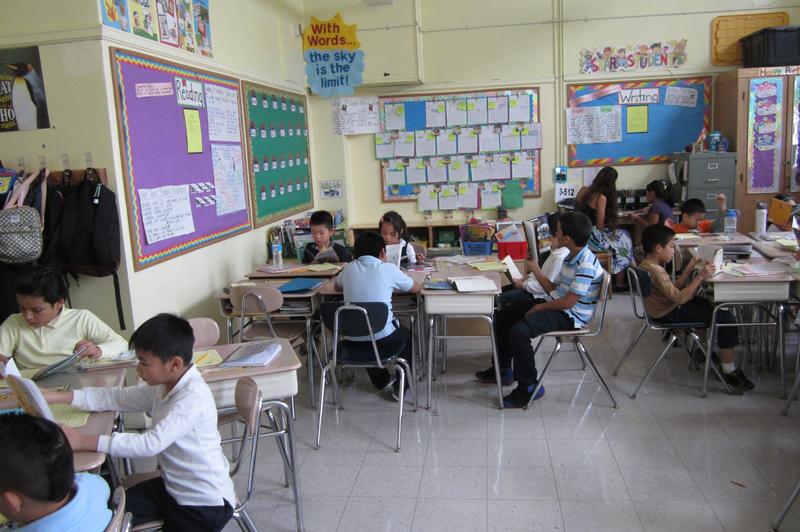
The teachers union joined the call for a tax on high-end co-op and condo buyers who use their apartments only occasionally, as a way to fund smaller class sizes in the early grades.
Currently, many owners in luxury buildings, such as the new One57 on West 57th Street, are paying lower than average property tax rates because the developers benefited from a city program to encourage new construction. But a large share of those owners actually live overseas, leaving their units vacant for much of the year.
On Tuesday, United Federation of Teachers president Michael Mulgrew said owners who don’t live in their luxury units for at least half the year should no longer benefit.
“We are not looking to create any additional tax whatsoever,” he said. “We’re just saying if you want to get these tax breaks or get the favorable treatment, you need to be a resident of the municipality which is giving it to you.”
The union proposed that absentee owners pay a 1.1 percent tax on the value of their property, if their buildings received special tax abatements. It estimates this would raise $900 million in new revenues, based on roughly 90,000 absentee-owner units with an average market value of $1.5 million each.
Mulgrew said that $900 million in revenue could reduce class size to 15 students for kindergarten through third grade. And it would pay for 7,000 to 8,000 new teachers. The city would still have to fund an estimated $1.5 billion to build and lease new space, he said.
But the head of the Real Estate Board of New York said he "respectfully disagreed" with the teachers union.
“The last thing we want to do is propose a tax that would drive away foreign investors who already overwhelmingly pay a great deal of property taxes and who contribute to the local economy through their purchases, their employment, and other spending across the city that generates tax revenue to fund vital city services including our school system,” said Steven Spinola, REBNY president, in a statement.
The union's position paper cited numerous studies showing smaller class sizes can make a difference in the earliest grades, especially for low-income students. During the 2012-13 academic year, first-grade classes in New York City averaged 27 pupils, according to state data.
Democratic State Senator Brad Hoylman has introduced a pied-á-terre 4 percent tax on the most expensive units, an approach that could raise estimated $665 million a year by looking at high-end units with absentee owners. It’s based on a proposal from the liberal leaning Fiscal Policy Institute and would not dedicate the funds solely to education.
But any tax proposal faces an uphill climb in Albany now that the Senate is controlled by Republicans, who strongly opposed Mayor Bill de Blasio’s so-called millionaire’s tax to pay for pre-kindergarten. The real estate industry fears an additional tax would drive wealthy investors away from New York.
Wiley Norvell, spokesman for Mayor Bill de Blasio, said City Hall was developing its legislative agenda for the upcoming legislative session.
"We look forward to reviewing the report and continuing our discussions with stakeholders as we set those priorities," he added.
